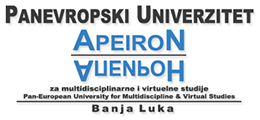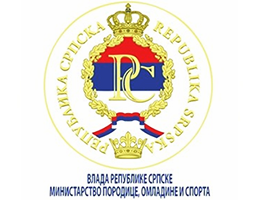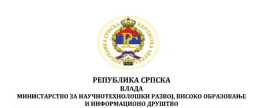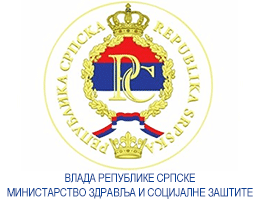INТERNAL DOMAIN AS A DEVELOPMENТAL POТENТIAL OF ТHE FUDOKAN KARAТE
Volume 14, Issue V (2024)
Volume 14, Issue V (2024)
INТERNAL DOMAIN AS A DEVELOPMENТAL POТENТIAL OF ТHE FUDOKAN KARAТE
Abstract:
In the sports domain karate gains popular- ity of enormous proportions. Judging by the massive- ness criterion, it is ranked immediately behind football. However, this ranking is not in accordance with the ap- propriate organizational concept, that would have vis- ible integrative feature. The problem of organizational and stylistic dissociation is transferred onto the national level, which causes the presence of a variety of competi- tive disciplines, the way of organization, an appropriate training approach, various interpretations of the basic ka- rate principles etc. Although such situation may create, to some extent, an illusion of positive sides (the possibility of training selection, larger number of stylistic varieties for training relatively “different“ forms of karate etc.) which is reflected on the massiveness, in organizational and con- ceptual context (basically of one skill) makes the problems in creating an effective concept of karate management. In this respect, various concepts of karate organization can be noticed, based on stylistic determinations. One of the autonomous organizational karate forms is The World Fu- dokan Federation - WFF, with its national federations as integral and constituent parts. Its basic concept is oriented towards the fostering of the traditional approach to karate (traditional karate do), i.e. fostering the traditional karate principles, established by the founder of the modern karate Gichin Funakoshi. As the organization, which, condition- ally speaking, is an ideological antipode to the so-called sports karate, it endeavors to affirm and preserve the basic karate values and adjust them to modern sports and so- cial tendencies. In this respect, it faces numerous organi- zational, sports-political, conceptual and other problems, induced by the external environment, but may be overcome by the activities and tendencies generated within the in- ternal domain of Fudokan Karate organization. Empirical research, carried out in the form of transversal study, was aimed at the identification of some facts of internal organi- zational domain of Fudokan, which may have positive im- pact on its development in the upcoming five-year-period, and are perceived by the main Fudokan karate holders (in- structors and trainers). The respondent sample comprised 73 instructors/trainers as the main activity holders in the clubs. The research was in the form of a survey and the key research instrument was a questionnaire devised as an estimation scale. The results have proved that the greatest potential for Fudokan development in the future belongs to the factors of Internal domain – Organizational structure, Organizational culture and Organizational resources, with the high level of possible impact.
Keywords:
Fudokan, domain, development
Full Text:
References:
Cohen, J.W. (1988). Statistical power analysis for the behavioral sciences (2nd edn.). Killsdale, NJ: Lawrence ErlbaumAssociates.
DeVellis, R. F. (2003). Scale development: Theory and applications (2nd ed.). Thousand Oaks, California: Sage.
Dees, G.G., Lumpkin, G.T., & Eisner, B.A. (2007). Strategic Management: Text and Cases. McGraw-Hill Companies, Inc.
Dimić, J. (2020). Prilog praktičnoj metodi testiranja brzinske izdžljivosti u karate sportu. U: V. Zbanov i M. Nešić (ur.). Međunarodna naučna
konferencija “Trenažne tehnologije u borilačkim sportovima”, Zbornik radova, Novi Sad: Fakultet za sport i turizam, 114-120. [in
Serbian]
Dragnić, A., Lazić, J., & Cvijanović, J. (2003). Međusobni uticaj organizacione strukture i korporativne kulture. Industrija, 3-4, 69-88. [in
Serbian]
Janićijević, N. (2012). The infl uence of organizational culture on organizational preferences towards the choice of organizational change strategy.
Economic Annals, 57, 25-528.
Jorga, I. (1998). Tradicionalni Fudokan karate - Moj put. Fudokan pres Internacional, Beograd/Berlin/Moskva/Amsterdam.
Jorga, V., & Jorga, I. (2017). International Fudokan Karate Rules and Regulations. Beograd: Fudokan Press International.
Jorga, I. (2019). Twenty general rules of education being of particular importance for the life training in Fudokan. In: Мокеев Геннадий
Иванович (Ot.red.). XIII Международной научно-практической конференции, посвященной 70-летию кафедры физического
воспитания УГАТУ “Aктуальные проблемы физической культуры, спорта и туризмa”, Материалы, Уфа: Уфимский
государственный авиационный технический университет, 82-84. [in Russian]
Йорга, И. (2020). Техника и принцип максимума силы в каратэ фудокан У: Мокеев Геннадий Иванович (Ot.red.)). XIII Международной
научно-практической конференции, посвященной 70-летию кафедры физического воспитания УГАТУ “Aктуальные проблемы
физической культуры, спорта и туризмa”, Материалы, Уфа: Уфимский государственный авиационный технический
университет, 86-89. [in Russian]
Lazarević-Moravčević, M., Paunović, M., & Mosurović-Ružičić, M. (2023). Uticaj organizacione strukture na inovativnost preduzeća. In:
28th International Scientifi c Conference Strategic Management and Decision Support Systems in Strategic Management SM 2023,
Proceedinga, Subotica: Faculty of Economics, 454-461.
Lawrence, A. K., & Wilder, K. (2005). The Way of Kata. NH: YMAA Publication Center Inc.
Mabuni, K. (2009). Empty Hand – the Essence of Budo Karate. Chemnitz: Palisander Verlag.
Micić, R. (2012). Uticaj organizacione kulture na organizacionu strukturu. Ekonomika, 2, 59-67. [in Serbian]
Nešić, M. (2008). Sport i menadžment. Novi Sad: Tims. [in Serbian]
Nešić, M., Dačić, D., & Srdić, V. (2014). Korisnička percepcija sistema sportskih usluga karate kluba. Sportske nauke i zdravlje, 4(2), 121-130.
[in Serbian]
Nešić, M., Srdić, V., & Fratrić, F. (2013). Činioci uticaja na modelovanje procesa promena u sportu, Sportske nauke i zdravlje, 3(1), 64-73. [in
Serbian]
Nešić, M., Nešić, B., & Dimić, J. (2023). Borilački sportovi Dalekog istoka u svetlu hrišćanske ontologije. Sportske nauke i zdravlje, 13(2), u
procesu izdavanja. [in Serbian]
Radoš, L. (2019). Faktori upravljanja karate klubom. Novi Sad: Fakultet za sport i turizam (doktorska disertacija). [in Serbian]
Swanson, J.D. (2017). Karate Science – Dynamic movement. NH: YMAA Publication Center.
Vukajlović, D. (2104). Upravljanje promjenama u sistemu sporta osoba sa invaliditetom u gradu Banja Luka. Banja Luka: Panevropski univerzitet
Apeiron, Fakultet sportskih nauka (doktorska disertacija). [in Serbian]
Vojnović, J. (2012). Predviđanje kao faktor strategijskog menadžmenta u sportu. Novi Sad: ACIMSI (doktorska disertacija). [in Serbian]






